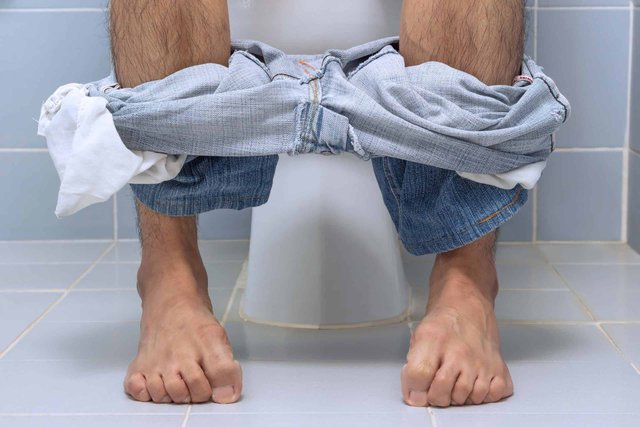
Constipation is a common problem that affects many people around the world. This problem can cause a lot of inconveniences, embracement, and even pain. Constipation can have various causes and affect a person's overall health. In this article we will look at all aspects of constipation: its definition, causes, symptoms, as well as methods of prevention and treatment.
What is constipation?
Constipation is a condition in which the frequency and volume of stool decreases, and the process of defecation becomes difficult. Interfering with the normal rhythm of the intestines can cause waste to remain in the body longer than usual, which can cause various discomforts and other symptoms.
Causes of constipation
There are many factors that can cause constipation. Here are some main reasons:
- Poor diet: Lack of fiber and water in the diet can significantly slow down bowel movements and cause constipation.
- Sedentary lifestyle: Lack of physical activity can slow down bowel movements, which can also lead to constipation.
- Stress and anxiety: Psychological factors can interfere with the normal functioning of the gastrointestinal tract, causing slower peristalsis.
- Some medical conditions: For example, irritable bowel syndrome, hypothyroidism, and other diseases can be associated with problems in the gastrointestinal tract.
- Medications: Some types of medications, such as opiates, antidepressants, and antacids, can cause constipation as a side effect.
Constipation symptoms
Symptoms of constipation can be different and vary depending on the severity of the problem. The most common of them include:
- Infrequency of bowel movements: If a person experiences difficulty passing bowel movements more than three days a week, it may indicate constipation.
- Hard stools: Constipation is often accompanied by the formation of hard stools, which makes bowel movements more painful.
- The feeling of incomplete evacuation: After a bowel movement, a person may feel that the intestines are not completely cleansed.
- Abdominal pain: Long-term constipation can cause abdominal pain and discomfort.
Preventing constipation
There are several steps you can take to prevent constipation:
- Eating well: Increase your intake of fiber, fruits, vegetables, and whole grains. This will help maintain gut health.
- Drinking regimen: Drink enough water to maintain the level of moisture in the intestines and facilitate the process of digesting food.
- Physical activity: Regular physical exercise helps maintain normal intestinal motility.
- Stress management: Relaxation practices and stress tolerance can help maintain GI health.
Treatment of constipation
If constipation has already occurred, there are several treatment methods:
- Diet changes: Increase your fiber and water intake, and avoid foods that may cause constipation.
- Physical activity: Regular exercise, such as walking or swimming, can stimulate the bowels.
- Use of medications: Sometimes your doctor may recommend the use of laxatives or drugs that stimulate peristalsis.
- Biologics: Probiotics can help restore the balance of microflora in the intestines.
- Consultation with a doctor: If constipation becomes chronic or is accompanied by pain and other severe symptoms, it is important to see a doctor for further investigations and treatment.
Instead of searching "gastroenterologist near me" and choosing the first thing that catches your eye, concentrate more on exploring the specialist's credentials, board certification, and experience to ensure you receive better care.
The bottom line
Constipation is a common problem that many people face. Understanding the causes, symptoms, and ways to prevent this condition can help maintain gut health. It is important to monitor your lifestyle, including proper nutrition, drinking enough water, and regular physical activity, to avoid gastrointestinal problems. If constipation occurs, it is important to take timely measures and, if necessary, seek medical help. Taking care of your gut health plays an important role in your overall well-being.